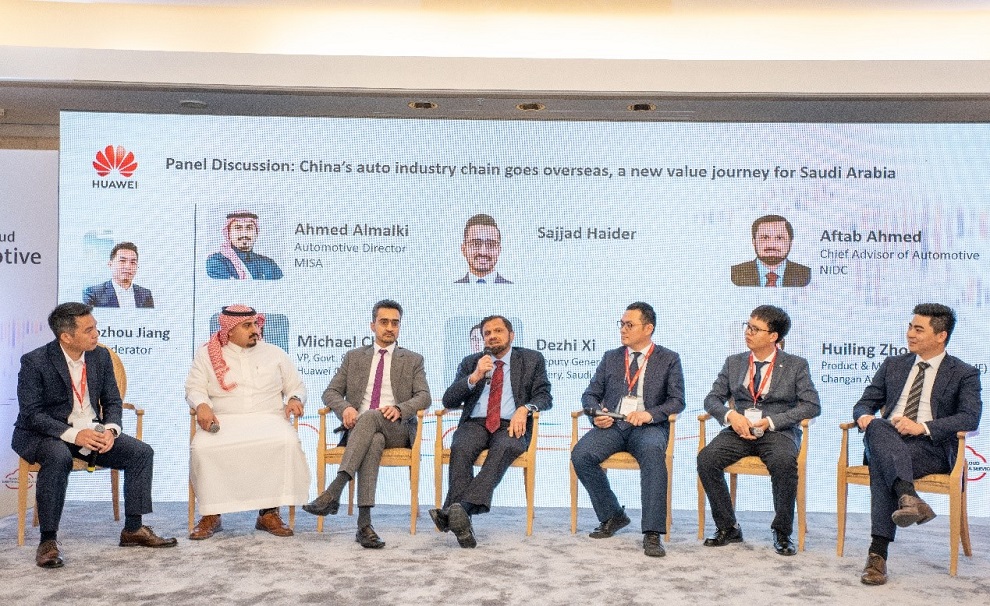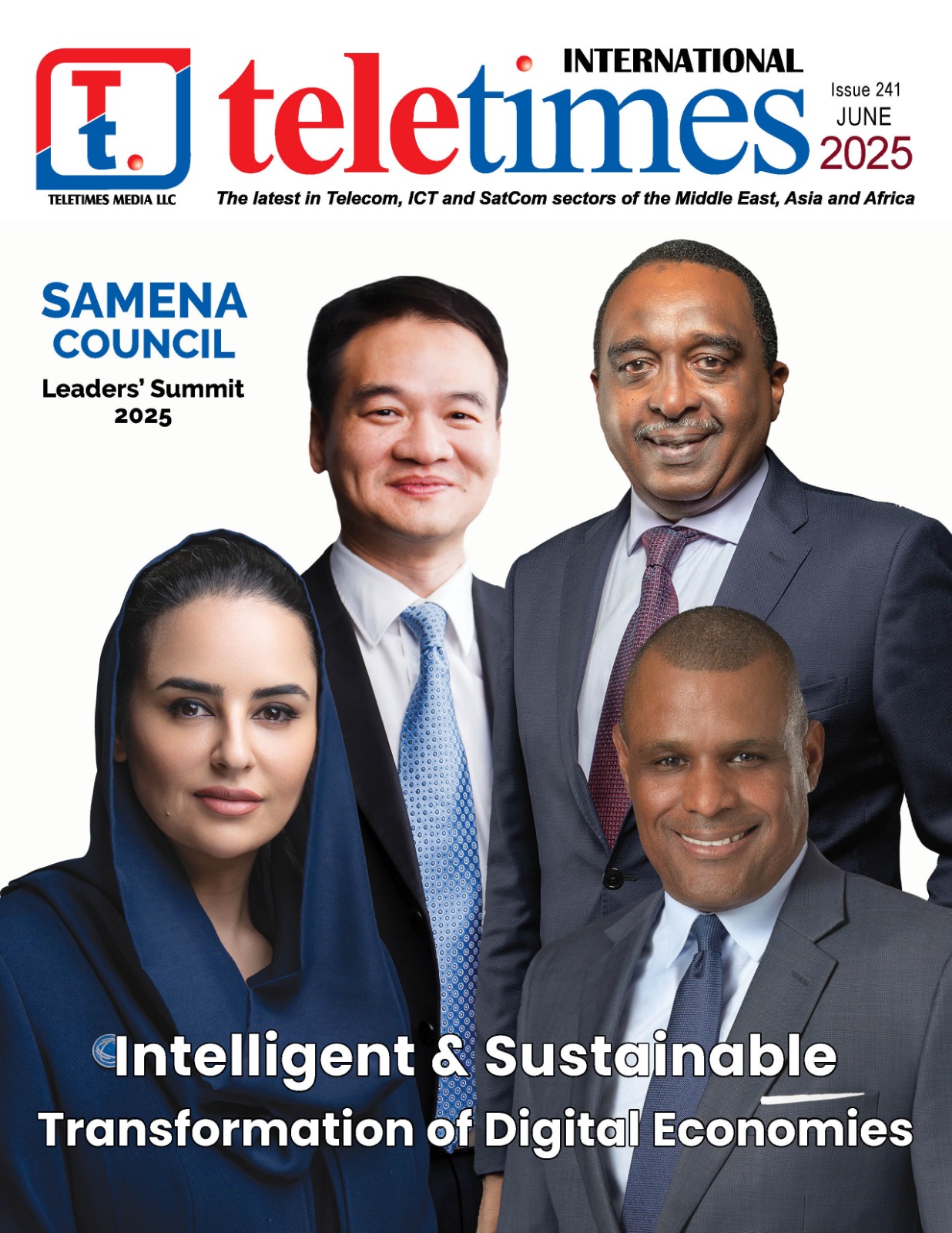A global leap towards intelligent connectivity: New opportunities for automotive globalization in Saudi Arabia
Huawei Cloud, the Ministry of Investment of Saudi Arabia (MISA), and the Communications, Space & Technology Commission of Saudi Arabia (CST) jointly hosted the Huawei Cloud Automotive Forum during LEAP 2024 earlier this year. Representatives from Saudi Arabian government departments, investment institutions, industry chain partners, and more than 10 Chinese-funded automotive enterprises attended the forum to discuss vehicle cloud smart connections, Chinese automotive enterprises going global, and opportunities in the Saudi Arabian market.
In 2023, China became the largest automotive exporter for the first time. Riding the wave of global digitalization and intelligence, Chinese automotive enterprises are ushering in a new era of going global. Emerging markets in the Middle East, such as Saudi Arabia, are offering digital development vision and preferential industry policies to attract Chinese and global enterprises to invest in Saudi Arabia.
At the event, MISA and CST reiterated Saudi Arabia’s policy incentives and market opportunities to Chinese automotive enterprises and industry chain representatives. Huawei Cloud released their brand-new “six-star support” service for automotive enterprises going global, and showcased Huawei Cloud’s Saudi Arabia Region, automotive solutions, and unmanned driving solutions for commercial and special vehicles.
Digital Vision 2023: Bring Intelligent Automotive to the Middle East
Ahmad Almajed, Director of Emerging Tech Motivation of CST, said that Saudi Arabia has tremendous opportunities for mobile digitalization and intelligence. The country also aims to stimulate digital transformation across industries through “Vision 2030”. To achieve this vision, CST, MISA, and other relevant entities strive to provide a better business environment for investors and automotive enterprises for faster implementation of cutting-edge innovative services such as autonomous driving in Saudi Arabia.
According to Ahmad Almajed, in the past two years, nearly 20 Chinese companies, such as Chery and ZEEKR, have been approved by CST to carry out intelligent connected vehicle services in the Saudi market. A number of auto brands have begun to commercialize these services, and MISA will continue to support Chinese companies in providing innovative services locally.
Ahmed Almalki, Automotive Director in MISA, said that Saudi Arabia, located at the center of cross-cultural communication, has been one of the world’s fastest-growing economies in the past five years. As part of Saudi Arabia’s national strategies, four to five automotive OEMs will be introduced by 2035, producing more than 600,000 vehicles per year with 40% local gross value added. This vision will bring great investment opportunities to the upstream and downstream of the industry chain, including automotive enterprises, OEMs, logistics vendors, and spare parts suppliers.
By the end of 2023, the Saudi government will establish of four Special Economic Zones (SEZs), among which King Abdullah Economic City (KAEC) is positioned as an auto cluster with a focus on the supplier park. Ahmed Almalki pointed out that qualified enterprise projects will enjoy a series of SEZ tax incentives, such as corporate income tax benefits for up to 20 years, as well as all-around policy incentives regarding infrastructure, environmental protection, and talent.
During the forum, representatives from the Saudi government, Huawei Cloud, and Chinese automotive enterprises engaged in a Q&A session and panel discussion. Many enterprises appreciated the valuable opportunities for face-to-face communication with the government, fostering consensus on intelligent automotive connectivity that will undoubtedly benefit Saudi Arabia’s local industry development. The government hopes that all new vehicles in Saudi Arabia will be equipped with intelligent connectivity in the future.
Huawei Cloud’s Six-Star Support for Automotive Enterprises to Succeed in the World
At the forum, William Dong, President of Huawei Cloud Marketing, delivered a presentation titled “A Global Leap Towards Intelligent Connectivity”, saying that Huawei Cloud not only provides customers with leading cloud technologies, but also opens up Huawei’s nearly 30 years of globalization expertise as “six-star support” for enterprises to go global.
Global presence: As one of the world’s fastest-growing mainstream cloud vendors, Huawei Cloud has been building a “One Global Network.” They now have local nodes in 85 AZs in 30 Regions around the world to provide high-quality, stable cloud services for customers from 170 countries and regions. Take the Middle East as an example, Huawei Cloud’s Saudi Arabia Region was officially announced in 2023. It provides 20 ms ultra-low latency and high-quality networks for local services, especially in IoV scenarios such as remote vehicle control and cockpit interaction.
Continuous innovation: Huawei Cloud provides automotive enterprises with comprehensive services, from intelligent connectivity and intelligent driving cloud platforms to a new marketing model. An automotive enterprise can build an all-serverless platform in just one month. Such platforms can scale according to the sales volume, supporting more than 100 million connections. On Huawei Cloud’s intelligent driving cloud platform, corner case scenarios are iterated in days, cars can sense the surrounding environment at the centimeter, and OTA upgrades can be completed with just a tap. This platform also facilitates the R&D of unmanned driving models for mines, port, and trunk logistics, and works with Saudi Arabia’s local city construction projects. Huawei Cloud’s data+AI marketing platform helps enterprises build unified data models to manage audience, labels, behavior, and operations data for fast marketing decision-making and instant response to market demand.
User growth: Huawei Cloud provides enterprise customers with global customer resources and business network channels. For B2C, Huawei Cloud collaborates with Huawei Mobile Services to connect 800 million Harmony ecosystem device users and massive global media resources. HMS for Car is also part of this collaboration. For B2B, Huawei Cloud continuously shares local market insights, industry policies, and operation experience. These ecosystem capabilities enable automakers to develop smart products faster and expand local business reach.
Stability and reliability: A stable live network is the lifeline of all IoV services. Huawei Cloud has a global intelligent O&M platform. Customer services covered by deterministic operations enjoy over 99.99% availability. More than 2,000 O&M engineers are ready to serve 24/7 from 170 service organizations around the world, safeguarding intelligent connectivity and global operations and sales services for automotive enterprises.
Security compliance: This is the prerequisite for global business development and continuous local operations. Huawei has been operating globally for nearly 30 years and works with excellent partners around the world to provide comprehensive compliance consulting services. These services help automotive enterprises quickly evaluate compliance gaps and risks based on local business requirements and provide feasible compliance implementation suggestions.
Shared ecosystem: It is now inevitable for China’s automotive industry chain to go global. Huawei Cloud will join hands with industry chain players throughout this journey and strive to build world-class brands together with 6 million global developers and partners.
Witnessing a New Global Automotive Industry in Saudi Arabia
The forum also included a panel discussion, during which representatives from MISA, Saudi Arabia’s Public Investment Fund (PIF), National Industrial Development Center (NIDC), Huawei Cloud, Chery, and Changan Automobile shared their insights on industry opportunities around the topic “China’s auto industry chain goes oversea, a new value journey in Saudi Arabia.”
Since 2011, the sales of Chinese vehicles in the kingdom have reached a compound annual growth rate (CAGR) of 51.1%, exceeding more than 100,000 vehicles sold in 2022, said Ahmed Almalki. Huawei is also offering full-fledged support for automotive enterprises to come to Saudi Arabia. The Saudi government and the market have very high expectations in this regard.
Aftab Ahmed, Chief Advisor of Automotive in NIDC, commented that driven by the national digital vision, Saudi Arabia focuses not only on individual projects, but also on an industry ecosystem of a fully-scaled supply chain. An integrated value chain, from OEMs to all tiers of suppliers, will witness shared success.
In September 2023, Huawei Cloud announced their 3-AZ cloud in the Riyadh Region, marking the official launch of localized cloud services for the Saudi Arabian market. Michael Chen, VP of Business Development, Huawei Cloud Middle East & Central Asia, said that Huawei Cloud’s Riyadh Region provides the digital infrastructure needed for Chinese automakers and developers to better develop, test, and deploy IoV platforms for Saudi Arabia. In addition, Huawei Cloud has been building its “one global network” and has been cooperating with all telecom carriers in Saudi Arabia for a long time. Network latency has been brought down to 20 milliseconds, making innovation accessible.
As the first Chinese automotive enterprise to invest in Saudi Arabia, Chery Automobile will launch IoV services for new vehicle models to be launched in the second quarter of this year based on Huawei Cloud services. Chery hopes that their vehicles will be 100% equipped with IoV by 2026. Dezhi Xi, Deputy General Manager of Chery Saudi Arabia, pointed out that Chery has set up a regional R&D center in Saudi Arabia to support local product development and continuous innovation to meet the requirements of young customers in Saudi Arabia and the GCC market. Chinese OEMs like Chery and Changan Automobile, Zeekr, Skyworth Auto, etc., all believe that faster R&D of local services and products is the key to a successful go-global journey. As one of the first Chinese enterprises to go global, Huawei has trained more than 18,000 IT engineers in Saudi Arabia over the past 20 years, has more than 500 local suppliers, and has set up local cloud data centers to continuously carry out local investment and cooperation. Michael Chen stated that based on the local cloud infrastructure, Huawei Cloud will bring more and more cutting-edge technologies and innovative services to not only help Chinese companies in Saudi Arabia, but also continuously help Saudi Arabia promote industry digital transformation and march towards Vision 2030.












